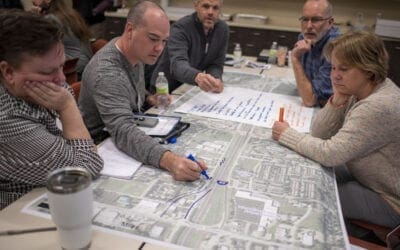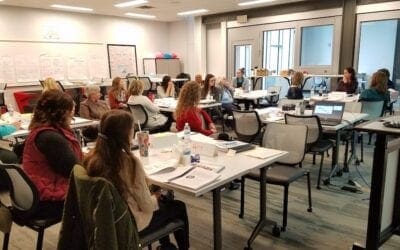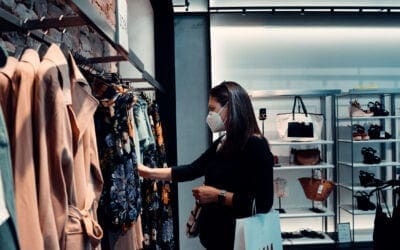Reducing COVID-19 Risk Indoors

The beginning of fall ushers in shorter days and cooling temperatures, signaling that winter is on its way. As we experience more breezy fall days, many of us will move inside, saying farewell to the summery days that lay behind us.
As you may know by now, socializing outdoors presents a lower risk of transmitting or contracting COVID-19 than indoors. The COVID-19 virus is primarily spread from person to person through respiratory droplets dispersed into the air from talking, coughing, or sneezing. When you’re outside, fresh air is consistently moving and can disperse respiratory droplets. When you’re indoors, you’re more likely to inhale these droplets because you’re sharing more air than you do outdoors.
Although socializing indoors presents a higher risk of COVID-19, there are a few ways to help reduce the risk of COVID-19 transmission:
Wear A Mask
Masks should be worn when interacting with those outside of your immediate household. If you are gathering at a friend’s or other family member’s house, reduce the risk of asymptomatic spread by wearing a mask while speaking with others or walking around. If you need to take your mask off to eat or drink, make sure you’re a safe distance from those outside of your household. You do not need to wear a mask indoors at home with your household members.
Smaller, Socially Distant Gatherings
Host and attend smaller gatherings and reduce the number of people you’re around as much as possible. If you have a close group of friends or family with whom you socialize with frequently, consider establishing a social bubble. Social bubbles limit the number of people whom you meaningfully interact with. Experts suggest capping your social bubble at about 10 people.
Additionally, reduce the amount of time spent around others indoors. An exposure is considered to be within six feet of a COVID-19 positive person for 15 minutes or more. Keep your distance, even with masks on. Remember the guidance is not wear a mask OR stay six feet apart, it’s wear a mask AND stay six feet apart.
Increase Air Flow
Increase airflow and ventilation in indoor spaces by opening windows when possible, and adjusting the ventilation system to increase the intake of outdoor air. More fresh air and airflow means lower risk. You can find more information on indoor air and reducing COVID-19 risk at the EPA Indoor Air and Coronavirus website.
It’s important to use a combination of these strategies to most effectively reduce the risk of COVID-19 while gathering indoors. These strategies include wearing a mask, keeping six feet of distance from those outside of your household, improving ventilation, avoiding crowds, and practicing frequent hand-washing and surface disinfection.
Sources
Archives
- February 2026 (1)
- December 2025 (1)
- November 2025 (2)
- September 2025 (1)
- July 2025 (2)
- June 2025 (3)
- April 2025 (2)
- January 2025 (2)
- December 2024 (1)
- September 2024 (2)
- August 2024 (2)
- July 2024 (1)
- June 2024 (1)
- February 2024 (1)
- July 2023 (1)
- March 2023 (1)
- October 2022 (1)
- September 2022 (1)
- August 2022 (1)
- July 2022 (2)
- June 2022 (2)
- May 2022 (1)
- April 2022 (4)
- March 2022 (1)
- February 2022 (1)
- January 2022 (1)
- December 2021 (4)
- November 2021 (3)
- September 2021 (2)
- August 2021 (3)
- July 2021 (2)
- June 2021 (1)
- May 2021 (2)
- March 2021 (1)
- December 2020 (6)
- November 2020 (8)
- October 2020 (4)
- September 2020 (7)
- August 2020 (3)
- July 2020 (11)
- May 2020 (2)
- April 2020 (4)
- March 2020 (1)
Categories
- Communicable Disease (5)
- Clinical Services (19)
- Clinical Servcies (1)
- Health Promotions (74)
- Emergency Preparedness (8)





